Graham R. Enos
Evaluating quantum generative models via imbalanced data classification benchmarks
Aug 21, 2023

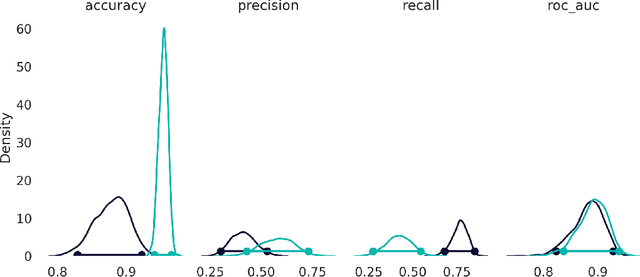
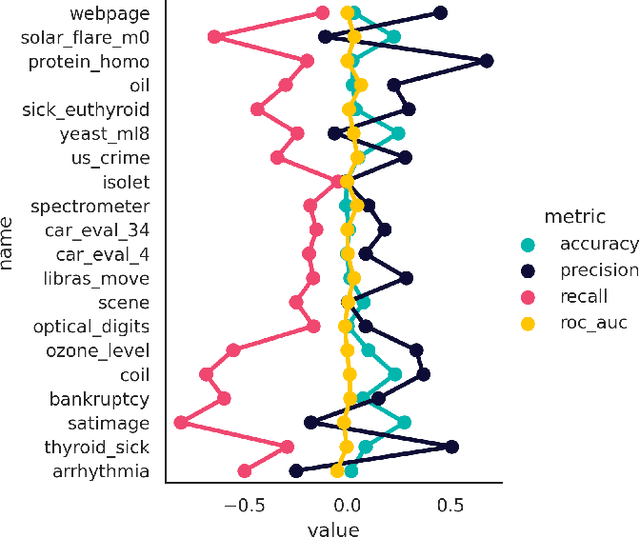
Abstract:A limited set of tools exist for assessing whether the behavior of quantum machine learning models diverges from conventional models, outside of abstract or theoretical settings. We present a systematic application of explainable artificial intelligence techniques to analyze synthetic data generated from a hybrid quantum-classical neural network adapted from twenty different real-world data sets, including solar flares, cardiac arrhythmia, and speech data. Each of these data sets exhibits varying degrees of complexity and class imbalance. We benchmark the quantum-generated data relative to state-of-the-art methods for mitigating class imbalance for associated classification tasks. We leverage this approach to elucidate the qualities of a problem that make it more or less likely to be amenable to a hybrid quantum-classical generative model.
Synthetic weather radar using hybrid quantum-classical machine learning
Nov 30, 2021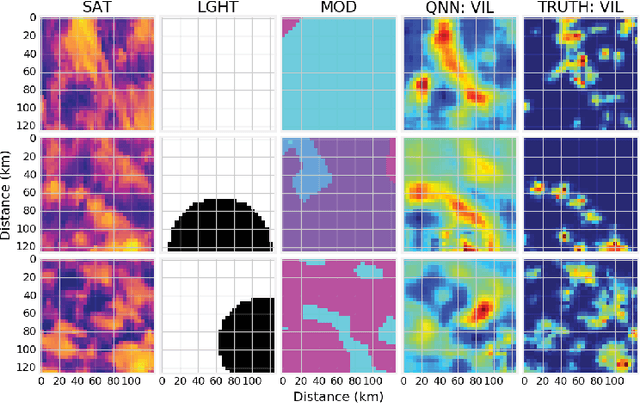
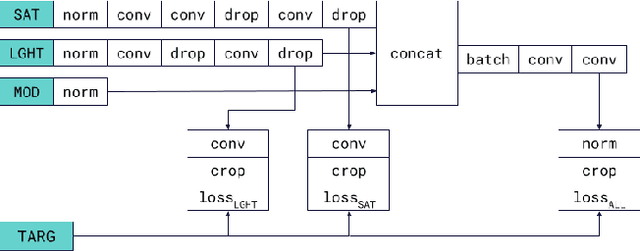
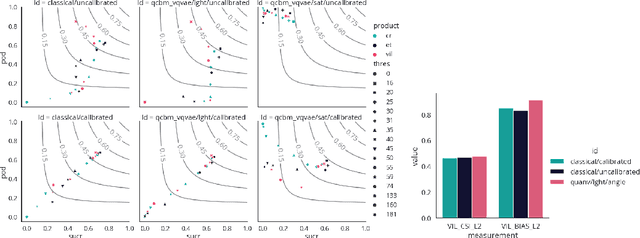

Abstract:The availability of high-resolution weather radar images underpins effective forecasting and decision-making. In regions beyond traditional radar coverage, generative models have emerged as an important synthetic capability, fusing more ubiquitous data sources, such as satellite imagery and numerical weather models, into accurate radar-like products. Here, we demonstrate methods to augment conventional convolutional neural networks with quantum-assisted models for generative tasks in global synthetic weather radar. We show that quantum kernels can, in principle, perform fundamentally more complex tasks than classical learning machines on the relevant underlying data. Our results establish synthetic weather radar as an effective heuristic benchmark for quantum computing capabilities and set the stage for detailed quantum advantage benchmarking on a high-impact operationally relevant problem.
 Add to Chrome
Add to Chrome Add to Firefox
Add to Firefox Add to Edge
Add to Edge